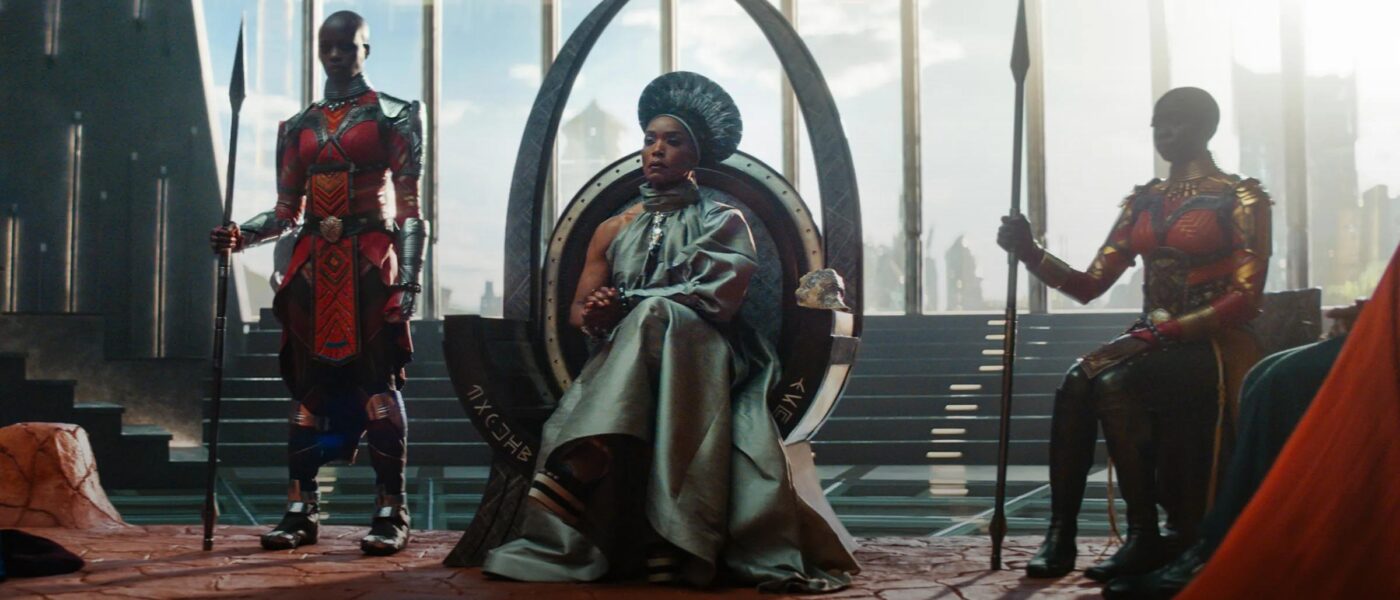Black Panther: Wakanda Forever Is A Riveting And Emotional Film
After years of speculation, the long-awaited sequel to the triumphant 2018 blockbuster Black Panther was released on Nov. 11.
With a runtime of 161 minutes, Black Panther: Wakanda Forever pays homage to the late Chadwick Boseman, who starred as King T’Challa in the 2018 installment before passing from colon cancer in 2020.
Boseman’s sudden death left a sizable gap in the Marvel Cinematic Universe, but the new film creates the perfect balance between the typical spectacle we expect from the MCU and the grief we felt for King T’Challa.
Black Panther: Wakanda Forever follows T’Challa’s sister, Shuri, as she and the people of Wakanda mourn and adapt to the loss of their king.
Nearly instantly, pressure from other nations on Wakanda is abundant, with many seeking to obtain the very powerful substance of Vibranium that’s been used by the Wakandan people.
The movie shows the underwater nation of Talokan as it declares war on Wakanda to attain the coveted resource.
That is where one of the film’s biggest highlights is introduced. Manor the Sub-Mariner, Talokan’s king, who is played by Tenoch Huerta, serves as the ideological opponent to Wakanda and is a much-needed newcomer to the MCU.
He is neither a villain nor a hero, but a broken man, who desperately feels the need to protect his people. Despite being the antagonist of the film, his motivations and purpose are reasonable.
Namor will likely be a major player in future MCU films.
The film features great acting performances by Angela Bassett, Dani Gurira, Winston Duke, Lupita Nyong’o and Letitia Wright.
Basset is bound to earn a Best Supporting Actress Academy award for her role as Queen Ramonda—T’Challa’s grief-stricken mother.
Her performance is just as valuable as director Ryan Coogler’s contribution.
The 36-year-old Oakland-native solidified his name in the upper echelon of film directors through his vision and an ability to derive iconic performances from his actors.
The collaboration produces a film with riveting action and gorgeous visuals that allow the viewer to focus on how grief affects leaders, families and those around them.
Black Panther: Wakanda Forever is an entry into the Marvel pantheon that the studio should be proud of.
Although it suffers from familiar Marvel flaws, such as forced comedy and cheesy amateur dialogue, the frequency of these issues is less prominent than that of a standard MCU entry.
While not as notable as the first movie, Black Panther: Wakanda Forever serves as an escapist extravaganza filled with masterful computer-generated imagery that pays tribute to Boseman’s legacy.




